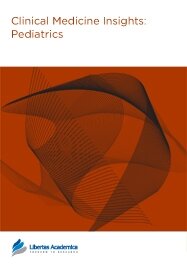

Publication Date: 18 Jul 2008
Journal: Clinical Medicine Insights: Pediatrics

School of Nutrition and Food, Ryerson University, Toronto, Ontario, Canada.
Abstract
Background: Food and beverage marketing has been implicated in the childhood obesity “pandemic.” Prior studies have established the negative impact of television advertising on children’s dietary intake, yet few have considered the role of online food and beverage marketing, particularly within the Canadian context.
Objective: This study explores children’s engagement in online marketing and investigates the potential impact on their dietary intake.
Methods: Participants were recruited from the Ryerson University Summer Day Camp to participate in a single one-on-one semi-structured interview.
Results: A total of 83 children (age 7 to13 years; mean 9.99 years; 56.3% boys, 43.8% girls) participated in the study. Fewer children thought that there is food, drink, or candy advertising on the internet (67.7%) than on television (98.8%) (p 0.001). Awareness of online marketing increased with age: 7 to 8 year olds (23.67%; 4), 9 to10 years (63.89%; 23), 11 to12 years (86.96%; 20); 13 years (100%; 9). Over one-third of children had visited a website after seeing the address advertised on television (n = 32; 38.55%) or on product package (n = 29; 34.94%).
Conclusions: Branded internet sites, commonly featured on television and product packaging, offer new opportunities for marketers to reach children with messages promoting commercial food and beverage items. These websites are subsequently spread via word-of-mouth through children’s peer networks. The independent impact of web-based food, drink and candy marketing, as well as the synergistic effect of multi-channel product promotion, on children’s dietary intake merits further investigation.
PDF (231.29 KB PDF FORMAT)
RIS citation (ENDNOTE, REFERENCE MANAGER, PROCITE, REFWORKS)
BibTex citation (BIBDESK, LATEX)
The publishing experience in Libertas Academica journals is unique. Readers can feel satisfied that publications are peer reviewed. Authors follow simple steps to reach final stage of publication. All readers have access to articles. Journal subscriptions or medical library access is not needed.

All authors are surveyed after their articles are published. Authors are asked to rate their experience in a variety of areas, and their responses help us to monitor our performance. Presented here are their responses in some key areas. No 'poor' or 'very poor' responses were received; these are represented in the 'other' category.See Our Results
Copyright © 2013 Libertas Academica Ltd (except open access articles and accompanying metadata and supplementary files.)
FacebookGoogle+Twitter
PinterestTumblrYouTube